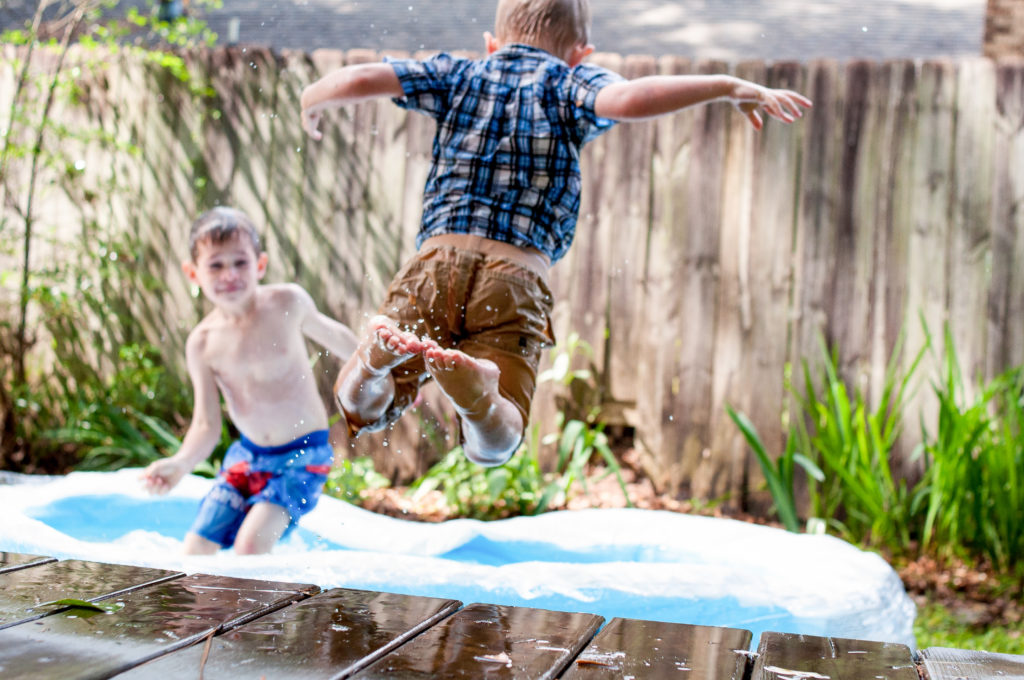
Is It ADHD, or Is My Child Just a Ninja?
This one is actually pretty easy to answer: Yes, your child is most certainly a ninja, or at least a ninja-in-training. By ninja I mean someone whose movement is practiced, who feels confident in her skillset, and whose intense activity can be leveraged to reach terrific heights. Your child may be a musical ninja, a climbing ninja, or a ninja ninja. To realize their ninja status, children need their parents and other important adults to develop and sustain a supportive mindset. This does not mean that you should minimize or deny your child’s limitations. On the contrary. They are important for knowing your child’s unique needs. However, parents of children with ADHD should also be connoisseurs of their little ones’ strengths.
"To realize their ninja status, children need their parents and other important adults to develop and sustain a supportive mindset."
This all sounds well and good, but it can be extremely difficult for these parents to remember their child’s strengths when they are contending with the negative feedback that their child’s behavior often elicits in others. To keep that child-as-ninja mindset, parents can start by focusing on two goals: (1) Develop a language of energy with the child, and (2) build up the child’s executive functioning skills.
Want More Help with Your Child?
Enroll Now in a Free Online Course on Parenting Tough Toddlers!
A Language of Energy
Kids who get in trouble a lot run the risk of internalizing the message that they are bad, even when adults do not explicitly say so. One common parenting tactic to avoid shaming the child is to emphasize the child’s behavior when correcting him (e.g., "You need to act better, son"), with the ultimate goal of helping the child see that he has a choice in how to behave. The problem with relying exclusively on this strategy is that children with ADHD often struggle to control their behavior, and because things happen so quickly the idea that they made a choice that led to the ill-advised action doesn’t feel right. Their impulsivity often gets the best of them.
This is why I propose shifting the dialogue away from behavior and towards energy. When a father tells his kindergartner son, who’s bouncing off the walls, “Wow! You have a lot of energy,” it resonates. Here is one example of a follow-up. The father says, “Let’s take that energy outside so you can have fun without breaking anything in here.” He accomplishes the goal of avoiding both physical and emotional damage. That is, the child doesn’t break anything in the house and he doesn’t feel ashamed of his behavior. But dad also helps the boy to connect his internal state (high energy) with his behavior (bouncing off the walls), and in doing so the elder strengthens the child’s self-awareness and self-regulation skills, two important aspects of ninja training.
Executive Functioning Skills
Awareness and control are closely linked to another set of vital skills known as executive functioning, which include the ability to plan, organize, focus and persist, self-reflect, and inhibit our responses when necessary. From this list it seems clear that children with ADHD tend to struggle to develop executive skills. Now, these children are not alone. Executive functioning corresponds to parts of the brain that don’t fully mature until at least our mid-20s. But the seeds of these capacities are sewn in early childhood. Parents can take an active role in coaching these skills and helping other important adults do the same for the child.
"Executive functioning corresponds to parts of the brain that don’t fully mature until at least our mid-20s."
We can build on the outside intervention described above:
Dad: “Yep, coming out here was the right idea. You can jump around and catch bugs all you want. In fact, let’s come outside first thing in the morning so we have a good start to the day. You remind me.”
Child: [Head still down as he searches for ants] “OK.”
Dad: I need to get back inside. What can you do in the house that will keep your energy calmer than it was?
Child: “I don’t know...Legos?”
Dad: “Sounds good. Let’s go.”
Lots of skills being practiced here. Dad models self-reflection for his son and turns it into a small planning/memory challenge for the child. We also see dad give the child a chance to think about his energy levels and prepare for an activity that’s more appropriate for indoors. Of course, the child will likely need thousands of repetitions like this, but that’s how a kid becomes a black belt. He just needs his parents to be his sensei.
For more information on executive functioning, check out Peg Dawson and Richard Guare’s book, Executive Skills in Children and Adolescents. It has tables with helpful examples of how to coach your child. And be sure to sign up below for the free course on parenting toddlers. Many of the tips and principles are useful for kids with ADHD, even if they are a little older.


